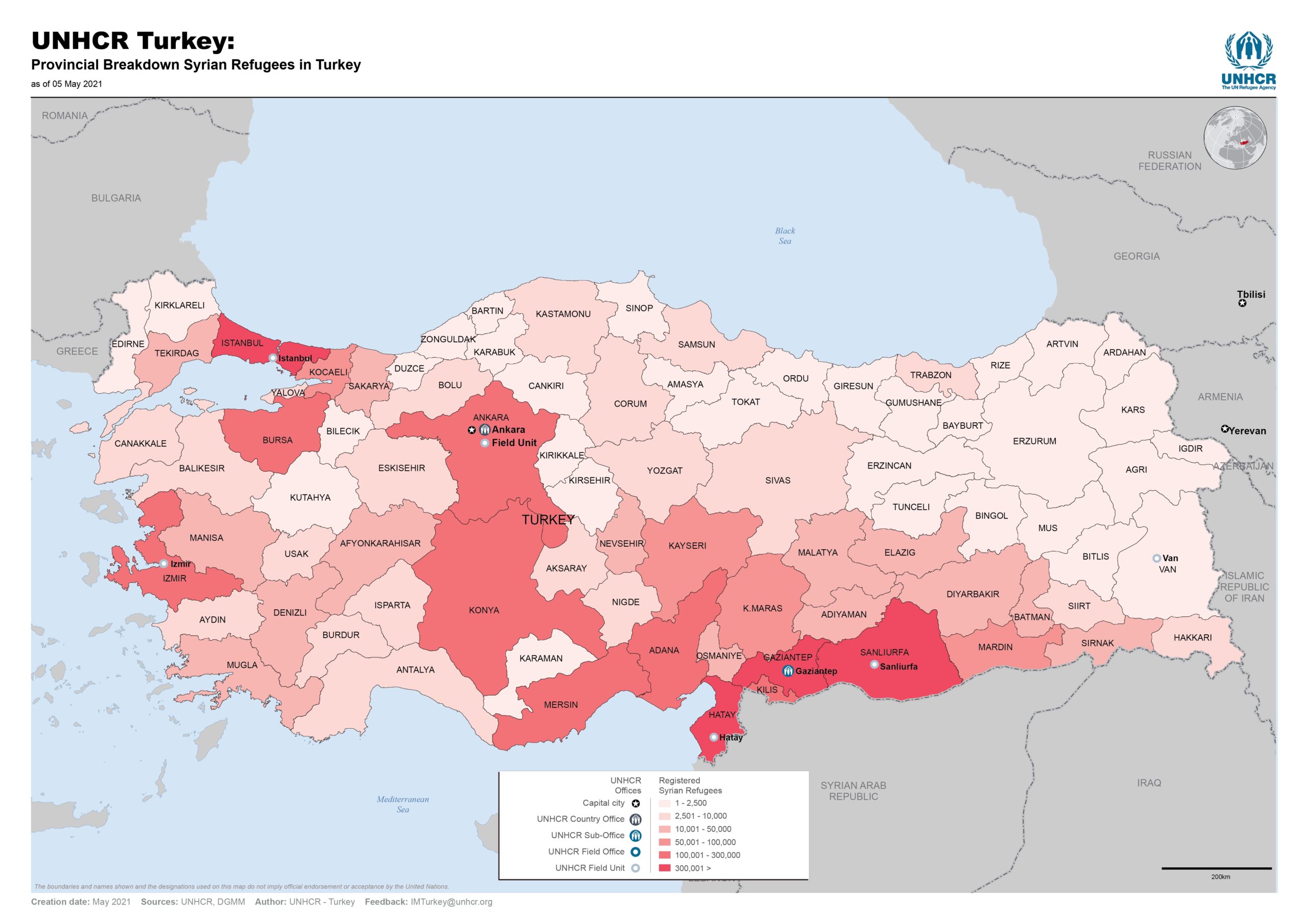Levent Kenez/Stockholm
The Turkish government on Tuesday banned new migrants and refugees from entering and residing in Ankara effective September 2, adding that Syrian refugees who are already living in the capital city without permission will be sent to the cities in which they are officially registered. The decision came after violent attacks last month on homes and businesses owned by Syrian nationals in Ankara’s Altındağ district in which hundreds of people took to the streets, chanting anti-Syrian and racist slogans.
Turkey’s General Directorate of Migration Management announced that irregular migrants, who do not have any protection status or residence permit, will be arrested by law enforcement and placed under detention in removal centers for deportation. Under another decision, inspections of illegal workplaces operated by Syrians in Ankara will be increased in response to complaints by locals of unfair competition. Many people point to the fact that Syrians competing with Turkish merchants is an important reason for anti-Syrian rhetoric. It has also been announced that derelict or abandoned buildings where migrants live will be also identified and demolished.
Turkish authorities occasionally make such decisions to lessen the public reaction against migrants when a nationalistic, anti-refugee wave rises in the country or tensions with Syrians make the headlines. A similar decision was taken for Syrians living in İstanbul in 2019, when the police carried out identity checks on Syrians in the streets and immediately put those who were undocumented or registered in a city other than Istanbul on buses to migration camps. While dozens of Syrian men, who were told they would be registered and given identity cards, thought they were being taken to Hatay, a southern city close to the Syrian border, they were deported to Afrin, a city in the north of Syria under Turkish control despite the fact that all Syrian refugees in Turkey are protected against forced return to Syria, according to the United Nations Refugee Agency. The İstanbul Governor’s Office at the time announced that 12,474 undocumented foreign refugees were sent to removal centers July 12-31 2019, adding that 2,630 Syrians who were not registered in any province were put in temporary shelters.
It is not known exactly how many Syrians there are in Turkey due to the high number of unregistered and illegal migrants; therefore, the figures announced by the General Directorate of Migration Management are not reliable yet are the only official data available.

According to the general directorate, as of January 13, 2021 the province with the highest number of Syrians was Istanbul, with 519,171 refugees. Gaziantep, a southern city, followed Istanbul with 450,325.
When the number of Syrians is compared to the general population, the highest rate can be found in the small southern province of Kilis, where Syrians comprise 74.21 percent of residents. The lowest rate is 0.03 percent, in Bayburt, where only 23 Syrians officially live. Registered Syrians under temporary protection status account for 4.38 percent of the population of Turkey, or 3,645,557 Syrians in a country of 83,154,997. A total of 99,780 Syrians live in Ankara, whose population is around 5.6 million.
Turkey traditionally does not grant immigrant status to refugees. No matter how long they stay or work in Turkey, very few can become citizens and only their residence permits are extended. Nordic Monitor previously reported that Syrians and other nationals are now buying more and more homes in order to acquire citizenship or residence permits thanks to a real estate campaign to encourage the sale of housing to foreigners to meet its foreign exchange needs.
A worsening economy and the opposition’s pressure on refugees are causing a radical change in the government narrative. Turkish President Recep Tayyip Erdoğan often stated in the past that hosting Syrian refugees in Turkey was a religious duty as well as a matter of conscience. It is no secret that Erdoğan holds a trump card against the European Union by keeping Syrian refugees in Turkey and that this prevents the EU from imposing any sanctions for his anti-democratic actions against his critics.
However, the changing public mood shows that Erdoğan will not be able to use refugees or irregular migrants at the negotiating table for much longer. President Erdoğan last week said for the first time that he was aware of the Turkish public’s unease about refugees. He reiterated that the country had reinforced its border with Iran with the military, gendarmerie and police and that a wall being erected along the frontier was nearing completion. Regarding migrants, Erdoğan also said if the people of Europe live in peace and security today, it is thanks to Turkey’s sacrifices, which the opposition considered a political confession.
The Turkish government has been receiving a large amount of financial aid from the European Union and the UN in return for keeping Syrians within its borders. Many people are of the opinion that Turkey has become Europe’s migrant watchdog in exchange for money.
Turkish Foreign Minister Mevlüt Çavuşoğlu on Wednesday said the European Union is wrong if it thinks it can give money to Turkey to host Afghans, during a joint press conference with his counterpart, Sigrid Kaag, of the Netherlands in Ankara. Again, many critics sarcastically commented on social media that the minister said this to raise the price in the bargain.












